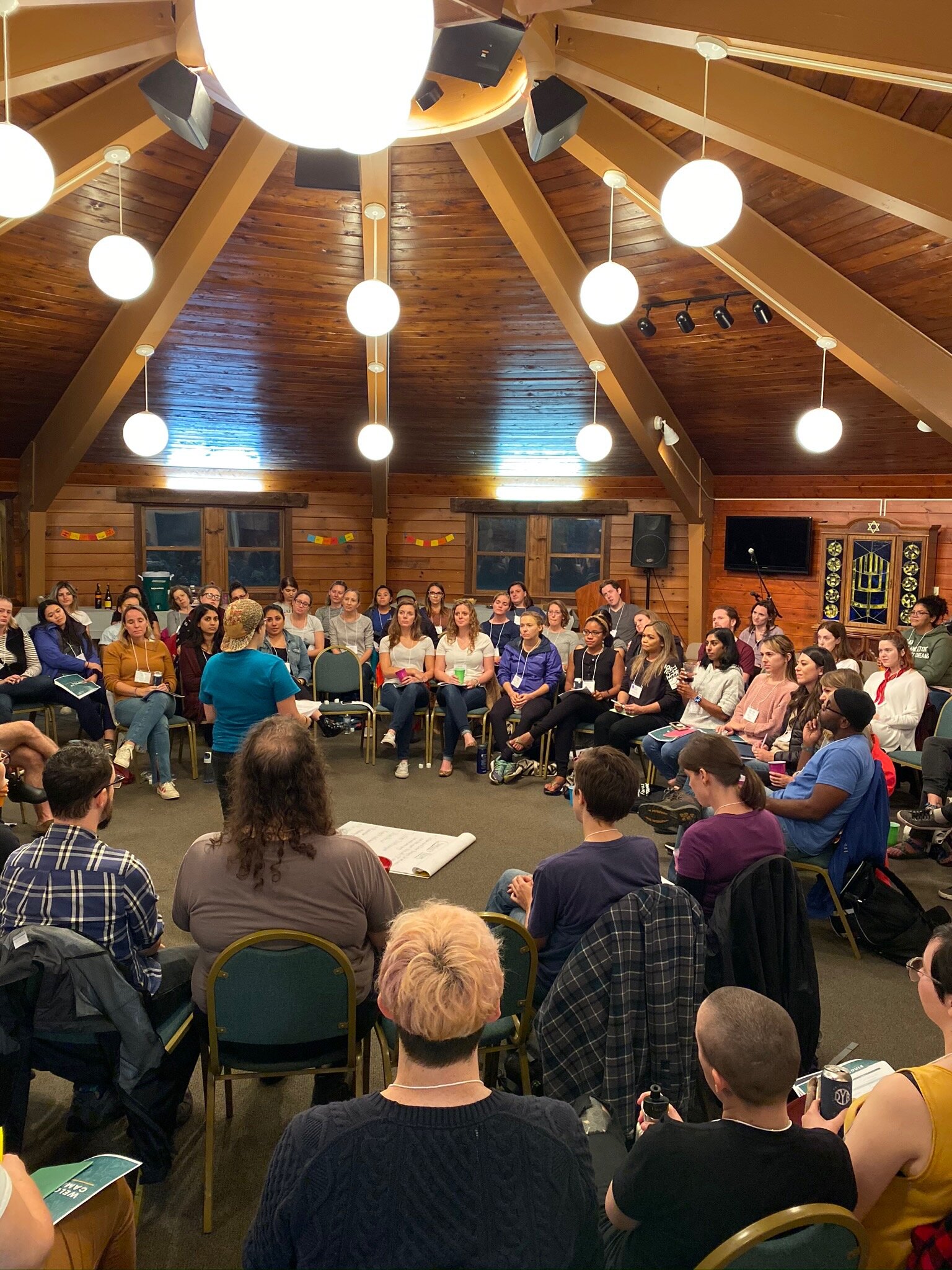“We waste so much time not loving each other.” - MarShawn McCarrel
“Healing doesn’t make us nice or cute. It makes us real.” - Vanessa Rochelle Lewis
“Shouldn’t we be asking for more? Shouldn’t we be moving from the concept of self-care to a broader, more inclusive notion of collective care?” - Brigid Delaney

We cannot heal without each other.
What is Collective Care?
Great question! At this point, most people are familiar with the concept of self-care and you probably have your own definition of what this looks like in your life. “When I’m stressed, I take a bubble bath” [or exercise, journal, or walk in nature] is a common one.
Yet, when shit hits the fan - when we experience loneliness, isolation, depression, anxiety, self-doubt - self-soothing, self-coping - while an important and necessary tool - is very rarely enough.
As Brigid Delaney at The Guardian explains: “Self-care is saying “I need to look after me,” while collective self-care is saying “we need to look after each other.”
While “we need to look after each other” is a nice sentiment, it’s easier said than done. With 65% of young adults and 50% of older adults reporting increased feelings of loneliness as we emerge from COVID-19 (Horigan, Schmidt, Feaster, 2020; AARP, 2020) and 43% of U.S. adults sharing that they sometimes or always feel they don’t have meaningful relationships (Cigna National Survey, 2020), it’s more important than ever to have spaces where we can answer “How are you really?,” show up for one another, and intentionally engage in the practice of interdependence and collective care.
What are you offering?
Collective Care Gathering Series
“What in your life are you seeking connection around the most?" This is the driving question behind CCCT’s Fall Gathering Series. People’s answers have been meaningful, humbling, and most of all human:
Being a healthcare worker or mental health professional & needing a space for me
Healing from a break up or divorce
Grief/loss, including loss of a parent
Connection with other caregivers
Considering a career change or starting a family
Building new LGBTQ+ or BIPOC connections
...and more
This is a four-part series where you - as a full, authentic human being - can connect with others who “get it,” answer the question “How are you really?,” and explore the philosophy and practices of collective care. Meaningful social connection - and being able to connect about how we actually are is the strongest protective factor for depression (Science Daily News, 2020), yet we have very little infrastructure to bring this into being.
This space combats this issue directly. It is not a magical cure-all for loneliness or isolation. It is a space where you’ll learn about collective care and connect in small groups around the things you're feeling most isolated around to find meaningful connection and support.
**A word about pricing: I’m a single LGBTQ+, non-binary person who is hoping to save enough to parent and support a child. As a white person, I am also committed to re-distributing a percentage of my income to reparations and black and indigenous rest, restoration, and joy. The cost of the offerings below is with this in mind. Special thanks to Linke Fligl for their income-based price model as inspiration.
Price rooted in income level:
Under $20k: FREE
(Working class background and/or income ~ $20k-30k/year): $60 ($15/gathering)
(Working class background and/or income ~ $30k-40k/year): $100 ($25/gathering)
(Middle class background and/or income ~$40-50k/year): $140 ($35/gathering)
(Middle class background and/or income ~$50-70k/year): $180 ($45/training)
(Upper-middle class background and/or income ~$70-90k/year): $220 ($55/training)
(Upper-middle class background and/or income ~$90-120k/year): $300 ($75/training)
(Wealthy - owning class background and/or family assets of over $120k/year): $400 or more ($100/training)
If you have questions about pricing or require flexibility to attend, please reach out to becca@collectivecareconsultingandtrainings.org and we’ll find a way for you to join.
Collective Care Trainings in the Workplace
“How does collective care possibly connect to the workplace?"
Do you feel like you can be "yourself" at work?
Do you feel connected to the people you work with - like you see them beyond Zoom boxes or cubicle walls and they see you?
Do you feel like your workplace acknowledges - not just verbally, but in behavior and in practice - that we're exhausted and disconnected from a global pandemic or are you encouraged to pretend like everything is normal?
As Annie Dillard says: "How we spend our days is how we spend our lives." The average American will spend at least one-third of their life at work, which makes it all the more important that we create humanizing and connected work cultures that center our collective dignity and well-being - and view this not as an add-on, but as a critical part of the workplace.
Research finds that building connections and humanizing each other at work leads to:
Reduced loneliness both inside and outside of work
Better mental and physical health outcomes
Lower stress
More supportive work cultures for workers of color, LGBTQ+ workers, workers with disabilities, and more
Higher levels of productivity and higher-quality work
CCCT provides trainings and resources for/alongside your HR Department, organizational leadership, or team. Two-hour, three-hour, and half-day trainings are available and can be customized to the specific needs of your group. Contact becca@collectivecareconsultingandtrainings.org for a free introductory call to learn more.



